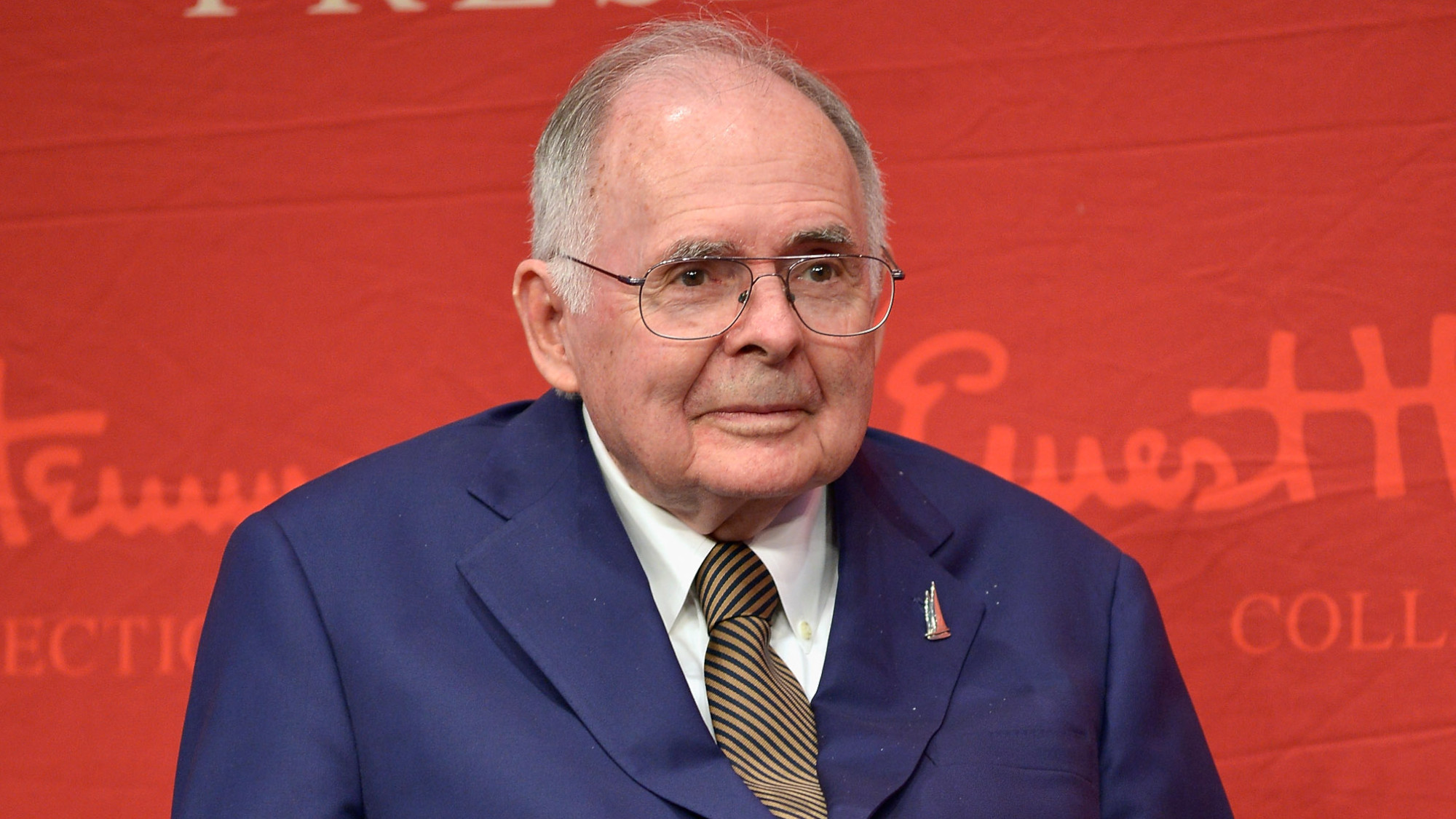Miep Gies
The secretary who preserved the diary of Anne Frank
A free daily email with the biggest news stories of the day – and the best features from TheWeek.com
You are now subscribed
Your newsletter sign-up was successful
Miep Gies
1909–2010
On Aug. 4, 1944, when the Gestapo raided the Amsterdam annex in which 15-year-old Anne Frank and her family hid during World War II, they left behind the diary that Anne had kept for more than two years. Miep Gies, who had helped protect the Franks, collected the diary and other pages of Anne’s writings, hoping that one day she might reclaim them. Anne never did, dying at Bergen-Belsen in March 1945. But thanks to Gies, the diary survived to become a literary classic and a testament to human courage.
The Week
Escape your echo chamber. Get the facts behind the news, plus analysis from multiple perspectives.

Sign up for The Week's Free Newsletters
From our morning news briefing to a weekly Good News Newsletter, get the best of The Week delivered directly to your inbox.
From our morning news briefing to a weekly Good News Newsletter, get the best of The Week delivered directly to your inbox.
Austrian-born Gies became secretary to Otto Frank, Anne’s father, a spice merchant, in 1933. “In July 1942, when thousands of Dutch Jews were being deported to concentration camps, the Frank family went into hiding in unused rooms above Frank’s office,” said The New York Times. “He asked Gies if she would help shelter them, and she unhesitatingly agreed.” With three other Frank employees, “she found food for them, brought books and news of the outside world, and provided emotional support.” Gies managed to escape arrest after the Franks were caught; when Otto Frank, the sole survivor, returned to Amsterdam after the war, Gies gave him the diary, which was first published in 1947.
In her later years Gies traveled the world, speaking against intolerance and accepting honors from West Germany, Israel, the Netherlands, and other nations. But in her memoir, Anne Frank Remembered, she insisted, “I am not a hero. I stand at the end of the long, long line of good Dutch people who did what I did and more—much more—during those dark and terrible times.”
A free daily email with the biggest news stories of the day – and the best features from TheWeek.com
-
 The ‘ravenous’ demand for Cornish minerals
The ‘ravenous’ demand for Cornish mineralsUnder the Radar Growing need for critical minerals to power tech has intensified ‘appetite’ for lithium, which could be a ‘huge boon’ for local economy
-
 Why are election experts taking Trump’s midterm threats seriously?
Why are election experts taking Trump’s midterm threats seriously?IN THE SPOTLIGHT As the president muses about polling place deployments and a centralized electoral system aimed at one-party control, lawmakers are taking this administration at its word
-
 ‘Restaurateurs have become millionaires’
‘Restaurateurs have become millionaires’Instant Opinion Opinion, comment and editorials of the day
-
 Catherine O'Hara: The madcap actress who sparkled on ‘SCTV’ and ‘Schitt’s Creek’
Catherine O'Hara: The madcap actress who sparkled on ‘SCTV’ and ‘Schitt’s Creek’Feature O'Hara cracked up audiences for more than 50 years
-
 Bob Weir: The Grateful Dead guitarist who kept the hippie flame
Bob Weir: The Grateful Dead guitarist who kept the hippie flameFeature The fan favorite died at 78
-
 Brigitte Bardot: the bombshell who embodied the new France
Brigitte Bardot: the bombshell who embodied the new FranceFeature The actress retired from cinema at 39, and later become known for animal rights activism and anti-Muslim bigotry
-
 Frank Gehry: the architect who made buildings flow like water
Frank Gehry: the architect who made buildings flow like waterFeature The revered building master died at the age of 96
-
 R&B singer D’Angelo
R&B singer D’AngeloFeature A reclusive visionary who transformed the genre
-
 Kiss guitarist Ace Frehley
Kiss guitarist Ace FrehleyFeature The rocker who shot fireworks from his guitar
-
 Robert Redford: the Hollywood icon who founded the Sundance Film Festival
Robert Redford: the Hollywood icon who founded the Sundance Film FestivalFeature Redford’s most lasting influence may have been as the man who ‘invigorated American independent cinema’ through Sundance
-
 Patrick Hemingway: The Hemingway son who tended to his father’s legacy
Patrick Hemingway: The Hemingway son who tended to his father’s legacyFeature He was comfortable in the shadow of his famous father, Ernest Hemingway